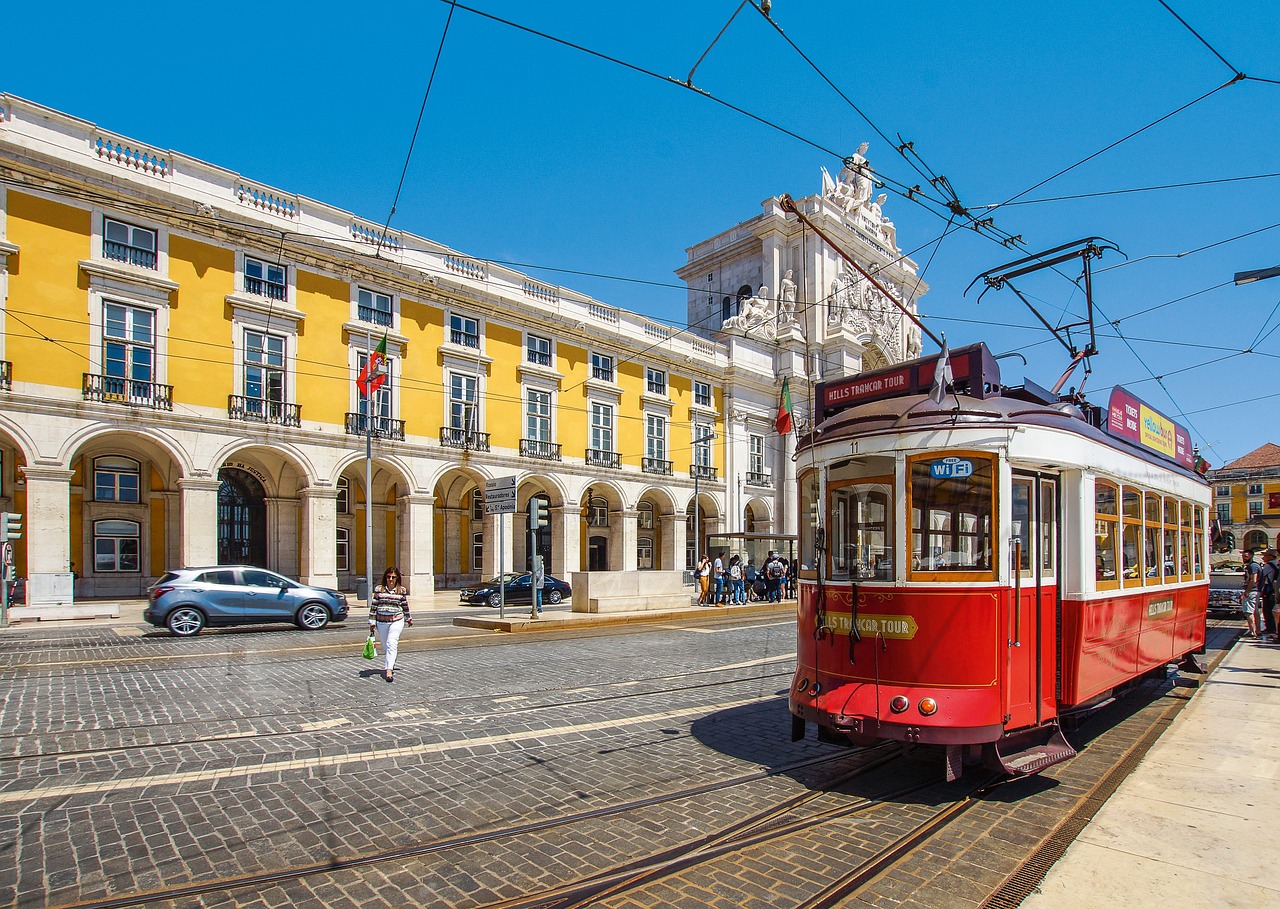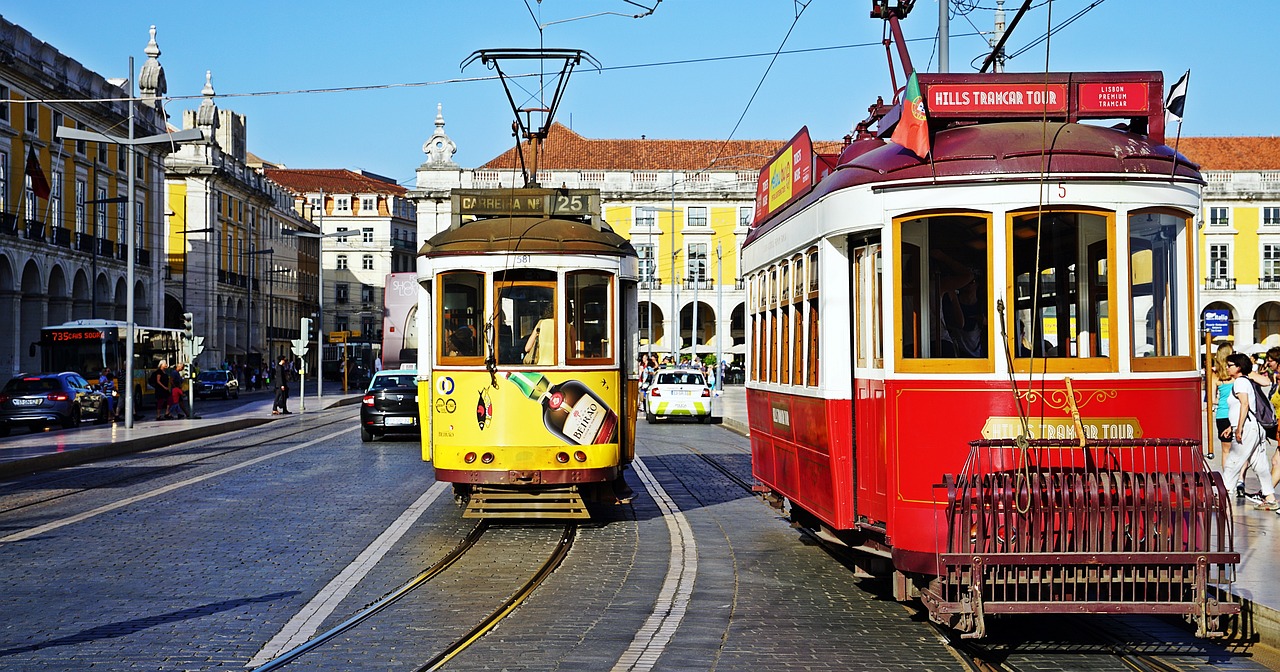Portugal Video
Indulging in Local Cuisine without Breaking the Bank in Portugal
Portugal is a country known for its rich culinary traditions and diverse local cuisine. From fresh seafood to hearty stews and delectable pastries, there is something to satisfy every palate. The best part is that you don’t have to spend a fortune to indulge in the local flavors. With a little bit of planning and insider knowledge, you can enjoy authentic Portuguese dishes without breaking the bank. In this article, we will explore some tips and recommendations for indulging in local cuisine on a budget in Portugal.
1. Explore Local Markets
One of the best ways to experience the true flavors of Portugal is by visiting local markets. These bustling hubs are filled with fresh produce, regional specialties, and artisanal products. Not only can you find affordable ingredients to cook your own meals, but you can also sample a variety of traditional dishes at market stalls and food stands. Some popular markets to visit include Mercado da Ribeira in Lisbon, Mercado do Bolhão in Porto, and Mercado dos Lavradores in Funchal.
- Fresh Produce: Take advantage of the wide selection of fresh fruits, vegetables, and herbs available at the markets. You can buy seasonal produce at lower prices compared to supermarkets.
- Local Delicacies: Try traditional snacks like bifana (pork sandwich), pastel de bacalhau (codfish pastry), or queijadas (cheese pastries) from the market stalls. These affordable treats are packed with flavor.
- Artisanal Products: Discover unique products such as olive oil, honey, cheese, and cured meats directly from local producers. These make great souvenirs and are often more affordable than buying them from specialty shops.
2. Embrace “Menu do Dia”
Many restaurants in Portugal offer a set menu for lunch called “Menu do Dia” or “Prato do Dia,” which translates to “Menu of the Day” or “Dish of the Day.” These menus typically include a soup or appetizer, a main course, dessert, and sometimes a drink – all at a fixed price. It’s an excellent way to try a variety of dishes without spending a fortune.
- Affordable Lunch: Look out for restaurants displaying signs or boards advertising their “Menu do Dia.” These menus are often more affordable compared to ordering à la carte.
- Local Specialties: Take the opportunity to try traditional Portuguese dishes included in the “Menu do Dia.” You might find regional favorites like bacalhau à Brás (codfish with eggs and potatoes) or cozido à portuguesa (a hearty meat and vegetable stew).
- Dessert Delights: Don’t skip dessert! Many “Menu do Dia” options include a sweet treat like pastel de nata (custard tart) or arroz doce (rice pudding).
3. Seek Out Tascas and Petiscarias
Tascas and petiscarias are small, local eateries that serve traditional Portuguese snacks and dishes at affordable prices. These establishments are often frequented by locals, which is a good sign that you’ll find authentic and tasty food without paying tourist prices.
- Tasca Culture: Tascas are known for their casual and cozy atmosphere, where you can enjoy simple, home-cooked meals at reasonable prices.
- Petiscos: Petiscos are small plates or appetizers that are perfect for sharing. Order a variety of petiscos to experience a range of flavors without breaking the bank.
- Local Favorites: Look for tascas and petiscarias that serve local specialties like caldo verde (kale soup), bifanas (pork sandwiches), or sardinhas assadas (grilled sardines).
4. Opt for Local Wine
Portugal is renowned for its wine production, and enjoying a glass of local wine is a must when indulging in Portuguese cuisine. Instead of ordering expensive imported wines, opt for local varieties that are often more affordable and equally delicious.
- Regional Wine: Explore the wine regions of Portugal and try wines produced nearby. From the Douro Valley’s rich reds to Vinho Verde’s refreshing whites, there is a wine for every taste and budget.
- Wine Tastings: Visit local wineries or wine bars that offer tastings. This allows you to sample a variety of wines without committing to a full bottle.
- House Wine: In many restaurants, you’ll find “vinho da casa” or house wine on the menu. These wines are often affordable and can complement your meal perfectly.
5. Follow the Locals
When it comes to finding affordable and delicious places to eat in Portugal, follow the locals. They know the hidden gems and the best spots for authentic cuisine at reasonable prices.
- Ask for Recommendations: Strike up a conversation with locals or ask your hotel staff for their favorite local eateries. They will be happy to share their insider tips.
- Avoid Touristy Areas: Restaurants located in touristy areas tend to have higher prices. Venture away from the main tourist attractions to find more affordable options.
- Look for Crowded Places: If a restaurant is full of locals, it’s a good sign that the food is delicious and reasonably priced.
6. Enjoy Traditional Pastries
No visit to Portugal is complete without indulging in the country’s famous pastries. From the creamy pastel de nata to the sweet and fluffy bola de Berlim, there are countless options to satisfy your sweet tooth without emptying your wallet.
- Pastelarias: Visit local pastelarias (pastry shops) to find a wide variety of traditional pastries. These shops often offer a selection of pastries at affordable prices.
- Grab-and-Go: Opt for takeaway pastries if you’re on a budget. Enjoy your treats while exploring the city or find a scenic spot to savor them.
- Specialty Pastries: Each region in Portugal has its own specialty pastries. Don’t miss out on trying regional favorites like pastel de Tentúgal in Coimbra or pastel de Belém in Lisbon.
7. Visit Local Taverns
For an authentic and budget-friendly dining experience, head to local taverns or “tascas” that serve traditional Portuguese food. These establishments are often family-run and offer a cozy atmosphere where you can enjoy home-cooked meals.
- Traditional Atmosphere: Step into a local tavern and experience the warmth and hospitality of Portuguese culture. These establishments often have a rustic charm that adds to the dining experience.
- Menu Variety: Look for taverns that offer a variety of dishes, including regional specialties. You’ll find everything from seafood rice to grilled meats and hearty stews.
- Affordable Prices: Local taverns are known for their reasonable prices, making them a great option for those on a budget.
8. Try Portuguese Street Food
Street food is a great way to taste local flavors without breaking the bank. Portugal offers a variety of delicious street food options that are both affordable and satisfying.
- Bifana: This traditional Portuguese sandwich consists of marinated pork loin served in a crusty roll. It’s a popular street food option that won’t disappoint.
- Prego: Similar to the bifana, prego is a sandwich made with beef steak. It’s typically served with garlic butter and can be found at street food stalls and food markets.
- Francesinha: Originating from Porto, this hearty sandwich is filled with layers of cured meats, cheese, and a rich tomato sauce. It’s a must-try street food delicacy.
9. Take Advantage of Lunch Specials
Many restaurants in Portugal offer lunch specials or “prato do dia” that are specifically designed for lunchtime dining. These specials often include a main course, drink, and sometimes a dessert, all at a discounted price.
- Affordable Lunch Options: Look for restaurants advertising lunch specials or “prato do dia” on their menu boards or websites. These options are usually more affordable than the regular menu.
- Daily Changing Menus: Lunch specials often change daily, offering a variety of dishes to choose from. It’s a great way to try different Portuguese flavors without spending a lot.
- Quick Service: Lunch specials are designed to be served quickly, making them a perfect option for those on a tight schedule.
10. Explore Coastal Towns for Seafood
Portugal’s long coastline and rich fishing traditions make it an excellent destination for seafood lovers. Coastal towns and fishing villages offer an abundance of fresh and affordable seafood dishes.
- Fresh Catch: Visit coastal towns like Nazaré, Peniche, or Setúbal to find restaurants that specialize in fresh seafood. You can enjoy grilled fish, seafood rice, or seafood platters at reasonable prices.
- Local Fish Markets: Explore local fish markets and look for stalls selling fresh seafood. Some markets even have small restaurants or food stands where you can have your seafood cooked on the spot.
- Sardine Festivals: If you’re visiting Portugal during the summer months, keep an eye out for sardine festivals. These events celebrate the country’s love for sardines and offer affordable grilled sardines along with traditional music and dancing.
11. Venture into the Countryside
While Portugal’s cities offer a wide range of dining options, venturing into the countryside can lead to unique culinary experiences at lower prices. Rural areas often have small family-run restaurants that serve traditional dishes made with locally sourced ingredients.
- Rural Restaurants: Explore the countryside and look for small restaurants or “adegas” that offer authentic Portuguese cuisine. These establishments often have fixed-price menus with generous portions.
- Local Ingredients: Rural areas are known for their agricultural production, so you can expect dishes made with fresh, locally sourced ingredients.
- Regional Specialties: Each region in Portugal has its own culinary specialties. When dining in the countryside, don’t miss the opportunity to try dishes that are specific to the area.
12. Take Cooking Classes
If you’re passionate about Portuguese cuisine and want to learn how to recreate traditional dishes at home, consider taking a cooking class. Cooking classes not only provide hands-on experience but also give you insights into the local ingredients and cooking techniques.
- Culinary Workshops: Look for cooking schools or culinary workshops that offer classes focused on Portuguese cuisine. These classes often include a guided market tour and hands-on cooking experience.
- Local Chefs: Learn from local chefs who are experts in Portuguese cuisine. They can teach you the secrets behind traditional recipes and help you develop your culinary skills.
- Recipe Collection: At the end of the cooking class, you’ll have a collection of recipes that you can recreate at home, allowing you to continue enjoying Portuguese flavors without breaking the bank.
Portugal Image 1:

Portugal Image 2:

Portugal Image 3:

References:
- www.visitportugal.com
- www.lonelyplanet.com
- www.eater.com
- www.theguardian.com
- www.portugalresident.com


